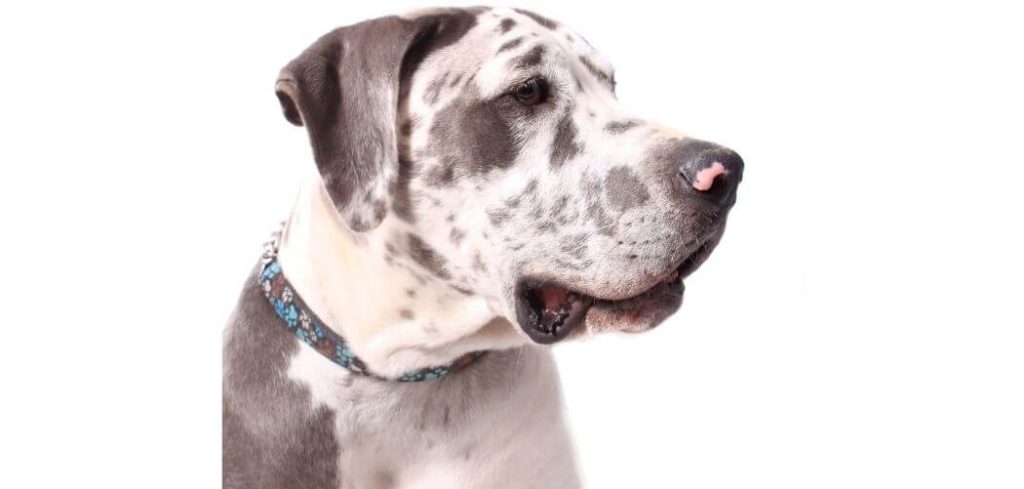When an old dog suddenly starts licking its nose excessively, it can be concerning for any pet owner.
While occasional nose-licking is normal in dogs, frequent or sudden changes in behavior may point to underlying health issues, discomfort, or stress.
We outline the common causes of sudden excessive nose licking in old dogs, what you can do at home, and when to seek veterinary help.
Old Dog Licking Nose Excessively Suddenly — Why It Happens
A senior dog licking its nose excessively can be linked to both minor and serious causes. In some cases, it may be due to simple dryness or irritation, but it can also signal nasal infections, dental disease, nausea, neurological changes, or even anxiety.
Because older dogs are more prone to age-related illnesses, sudden behavioral changes like this should not be ignored.

Sudden Excessive Nose Licking in Old Dogs: Common Causes
Nasal Irritation or Allergies
Environmental irritants such as dust, pollen, or household cleaners can trigger nasal irritation in older dogs.
This can lead to frequent nose-licking as they try to soothe the discomfort. You may also notice sneezing, watery eyes, or a runny nose.
Allergies can become more noticeable in senior dogs, even if they didn’t show symptoms when they were younger. Excessive nose-licking combined with other allergy signs may require veterinary guidance.
Read more: Dog Licking Nose Excessively Suddenly (What’s behind it?)
Dental Disease
Dental problems are one of the most common health issues in older dogs. Infections, gum inflammation, or loose teeth can cause discomfort that radiates to the nasal area. Licking the nose may be a way for the dog to cope with the discomfort.
If your dog also shows signs such as bad breath, pawing at the mouth, drooling, or refusing to eat hard food, dental disease could be a major factor behind the sudden nose-licking.
Nausea or Digestive Upset
Senior dogs are more prone to digestive sensitivities. Nausea, acid reflux, or upset stomachs can cause dogs to lick their noses repeatedly. This is often accompanied by drooling, grass eating, or vomiting.
If nose-licking seems to appear with gastrointestinal signs, it may point to an internal cause rather than a simple surface irritation.
Neurological Changes
As dogs age, neurological conditions may develop, affecting behavior and motor functions. Seizure activity, mini-strokes, or other neurological imbalances can cause repetitive behaviors like nose-licking.
Other signs may include disorientation, circling, tremors, or unsteady walking. Any sudden behavioral change linked to neurological signs should be taken seriously.
Anxiety or Stress
Older dogs often experience anxiety due to vision loss, hearing loss, or confusion (canine cognitive dysfunction). Nose-licking may act as a calming mechanism. This behavior may increase in stressful environments, during storms, or when routines change.
While stress-related licking may not be dangerous on its own, it can reduce a senior dog’s overall quality of life if not addressed.
Nasal Infections or Growths
Bacterial or fungal infections within the nasal passages can cause irritation that leads to persistent nose-licking. In older dogs, nasal tumors or polyps are also possible. These conditions often come with additional signs like bloody discharge, noisy breathing, or swelling.
Because growths are more common in senior dogs, this cause should always be considered if symptoms persist or worsen.
What to Do If Your Old Dog Is Suddenly Nose Licking Excessively
If your old dog suddenly begins licking its nose excessively, start by observing the frequency and context.
Make note of whether it occurs during meals, after exercise, or at rest. This information can help your vet with diagnosis.
At home, ensure your dog’s environment is free of strong scents, dust, or potential irritants. Providing fresh water and maintaining humidity in the air can ease nasal dryness. If dental issues are suspected, soft food may help until veterinary care is sought.
Reducing stress is also important. Keep your dog’s routine predictable, offer quiet rest areas, and use calming aids if recommended by your vet. However, avoid assuming stress is the only cause without first ruling out medical issues.
When to Call or Visit Your Vet
You should contact your veterinarian if your dog’s nose-licking is persistent, especially if it appears suddenly and does not improve within a day or two. Veterinary attention is urgent if you notice nosebleeds, nasal discharge, swelling, or difficulty breathing.
Immediate care is also needed if nose-licking is paired with vomiting, loss of appetite, seizures, or sudden weakness. These signs may indicate systemic illness that requires prompt treatment.
In senior dogs, even seemingly small changes can reveal important health shifts. Because older dogs are more vulnerable, erring on the side of caution is always best.
Read more: Senior Dog Licking Floor Excessively Suddenly (Causes you should know)
Key Takeaway
If an old dog is licking its nose excessively and suddenly, it may be more than just a harmless habit. Causes range from nasal irritation and dental disease to nausea, neurological changes, or even nasal growths.
Pet owners should monitor for additional signs, make their dog comfortable, and seek veterinary advice when needed.
With prompt attention, many underlying causes can be managed effectively, helping senior dogs stay comfortable and healthy.
